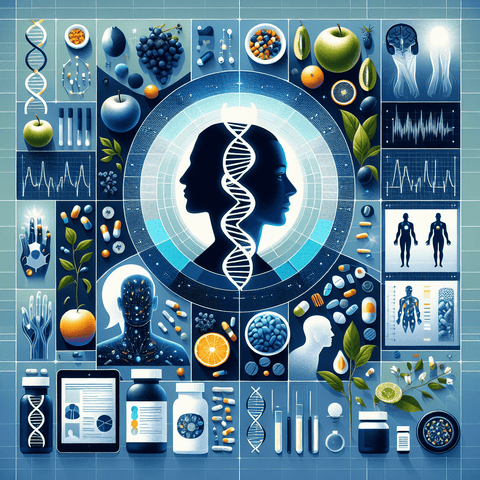Supplements and Medications: What You Shouldn't Mix
Understanding supplement drug interactions can help you avoid serious health risks. With more people turning to natural supplements for wellness, knowing how these products might interact with medications is crucial. This guide covers key conflicts and safety tips for using supplements alongside drugs.
What Are Supplement Drug Interactions?
Supplement drug interactions happen when a supplement affects how a medication works, or vice versa. This could mean a drug becomes less effective or causes harmful side effects. For example, some herbal supplements can increase the risk of bleeding when mixed with blood thinners. These interactions can alter the way your body absorbs and processes drugs or supplements.
Common Vitamin and Medication Conflicts
Certain vitamins are known to interfere with medications. Vitamin K, for instance, can counteract the effects of blood thinners like warfarin. This may increase the risk of blood clots. Similarly, high doses of vitamin E can boost bleeding risks when taken with anticoagulants. Another example is folic acid, which can reduce the effectiveness of some anti-epileptic drugs. Understanding these conflicts helps prevent complications.
Probiotic Medication Warnings
Probiotics are live bacteria that support gut health and immunity. They are popular supplements with many benefits. However, when combined with antibiotics, probiotics can become less effective. Antibiotics may kill both harmful and beneficial bacteria, disrupting gut balance. Some experts warn that taking probiotics too close to antibiotic doses might reduce the drug’s ability to treat infections. It’s also important to note that certain probiotics may not be safe for people with weakened immune systems.
Natural Supplement Safety Tips
To use supplements safely with medications, always tell your healthcare provider about all products you're taking. This helps avoid unexpected interactions. Never start or stop a supplement without medical advice. Read labels carefully, and choose products from trusted brands with certified quality. Stick to recommended doses and avoid combining several supplements with similar effects unless approved by your doctor.
What Not to Take with Supplements
Some supplements should never be taken with specific medications. For example, St. John’s Wort can reduce the effectiveness of birth control pills and antidepressants by speeding up drug metabolism. Ginkgo biloba may increase bleeding risks when combined with blood-thinning drugs. Avoid mixing calcium supplements with antibiotics like tetracycline, as calcium can block absorption. These warnings exist because mixing particular supplements with drugs alters how the body responds to treatment.
Understanding Drug Metabolism and Supplements
Drug metabolism involves how your liver breaks down medications. Supplements can affect this process by either speeding it up or slowing it down. For instance, some herbs stimulate liver enzymes, reducing drug levels in the blood and making them less effective. Others might inhibit these enzymes, leading to higher drug levels and increased side effects. Knowing how supplements influence drug metabolism helps prevent dangerous outcomes.
How to Manage and Prevent Harmful Interactions
Keep a detailed list of all supplements and medications you take. Share this list with your healthcare providers. Use reliable tools and apps to check for supplement drug interactions. If you notice unusual symptoms after starting a new supplement or medication, report them promptly. Regularly review your supplement routine with your doctor to ensure it remains safe and effective.
Conclusion
Being aware of supplement drug interactions is essential for your safety and health. Natural supplements can offer great benefits but may interfere with medications if not used carefully. Always seek professional advice before combining any supplements with drugs. This approach helps you enjoy the advantages of natural products while avoiding harmful conflicts.
Remember, natural supplement safety starts with informed choices and open communication with your healthcare team.



